Useful Info
Student Accommodation Information
Student Accommodation Options
Office Location
Unit 5A/4 Skyline Place,
Frenchs Forrest,
NSW, 2086, Australia.
Hotels Nearby
There are no hotels in the same suburb in Frenchs
Forest however there are some suburbs nearby with
hotels.
DEE WHY ( 10 MIN DRIVE )
Mercure Sydney Manly Warringah
Time and tide
NARRABEEN ( 15 MINS )
Narrabeen Sands Hotel
Narrabeen lakeside holiday park ( cheaper )
MANLY ( 15 MINS )
Manly Pacific Hotel Sydney ( More expensive )
The Sebel
Manly paradise ( More expensive )
Stoke beach house ( cheaper hostel )
Board rider backpacker ( cheaper hostel )
Manly bunkhouse
NEWPORT ( 21 MINS )
Newport Mirage ( Students get a discount )
SYDNEY CBD ( 30 MINS )
OTHER OPTIONS
Try looking on air b n b for private rooms if you would
like a cheaper alternative, you can find private rooms
closer to the office. If you are sharing with others
you could get a house and share costs.
PUBLIC TRANSPORT
Coming from the City – From Wynyard station catch
the 271 bus ( leaves every 15 mins ) to forest way
shopping centre , from forest way shopping centre
catch the 166 manly bus ( leaves every 30 mins ) and
get off at the stop near skyline place. From there it’s a
short 3 min walk to our office building.
Coming from the Northern Beaches – From Mona Vale,
catch the B-line bus to Dee Why (leaves every 5-10
mins), from Dee Why Catch the 166 ( leaves every 30
mins ) and get off at the stop near skyline place. From
there its a short 3 min walk to our office.
ENG1 & AMSA 303 MEDICAL INFORMATION
ENG1 & AMSA 303 MEDICAL INFORMATION
Medical requirements for a superyacht career.
If you intend to seek professional employment in the maritime industry you will need the applicable medical certification. A medical examination is a requirement to work in the maritime industry and on any Superyacht worldwide.
Whilst a medical certificate may not be required to complete entry level courses at Superyacht Crew Academy, a medical certificate is required to obtain employment. We do, however, recommend obtaining a medical or at least an eyesight and colour blindness check by a doctor or optometrist before seeking a maritime career, as vision impairments may affect employment opportunities. Some conditions, such as colour blindness, may enforce restrictions to obtaining a command certificate of competence and a commercial qualification. There are crew currently working in the industry who are colour vision defective, however their employment opportunities with vision impairments and restricted qualifications is limited and at the discretion of the yacht’s Captain, insurance & management company.
There are two types of medicals for the maritime industry:
ENG1 Medical
This is the most common medical certificate for the Superyacht industry and recommended by our academy. This MCA approved medical examination is valid for 2 years and can be obtained at any approved ENG1 medical center worldwide.
An MCA ENG1 medical is only recognized by foreign flagged vessels and is not accepted on Australian flagged vessels. Depending on your medical history this examination may take up to 1 hour and involves the following:
- Brief medical history
- Urine sample
- Eye sight test (including colour blindness)
- Hearing test
- Vital sign assessment
- Chest x-ray if applicable
- After successfully completing the medical examination the doctor will then issue you the ENG 1
- medical certificate on the same day.
It is recommended that you bring the following to your medical examination
- Photo ID
- Previous medical certificate if applicable
- Any medication you may take
- Glasses or contact lenses if applicable
To find out more information and an approved ENG1 doctor visit the following website:
https://www.gov.uk/government/organisations/maritime-and-coastguard-agency
AMSA 303 Certificate of Medical Fitness for International Certificates (Australian Maritime Safety Authority)
This AMSA 303 medical is considered equivalent to the MCA ENG1 and is accepted on both foreign and Australian flagged vessels.
The AMSA Certificate of Medical Fitness can only be issued by an AMSA approved medical examiner. These examiners can be found by calling 1300 763 822, or emailing seafarermedicals@sonichealthplus.com.au
To find out more information please visit the following website:
https://www.amsa.gov.au/forms/certificate-medical-fitness-international-certificates
Clarification on the Acceptance of AMSA Medical Certification for International Superyacht Employment and Reference to MSN 1815 (M) Amendment 6
In our ongoing effort to provide the most accurate and beneficial information to our students and graduates aiming for careers in the international superyacht industry, we wish to offer further clarification regarding the AMSA 303 Certificate of Medical Fitness, issued by the Australian Maritime Safety Authority (AMSA), in the context of its acceptance compared to the MCA ENG1 Medical Certificate.
The AMSA 303 Certificate of Medical Fitness is deemed equivalent to the MCA ENG1 Medical Certificate and is generally accepted for crew members on both foreign and Australian flagged vessels. This equivalency is supported by MSN 1815 (M) Amendment 6, which outlines the countries whose seafarer medical certificates meet international requirements and are acceptable for use on UK ships.
According to this amendment, the AMSA medical certification is recognized and accepted, aligning with the standards set by the Maritime and Coastguard Agency (MCA) for medical fitness in the maritime sector. For detailed information and the full text of MSN 1815 (M) Amendment 6, please refer to the document available at
https://assets.publishing.service.gov.uk/media/608bd54dd3bf7f01308d9c5b/MSN_1815_Amendment_6.pdf.
However, it’s crucial to understand that while this represents a legal acknowledgment of the AMSA 303 Certificate’s equivalency to the ENG1, individual captains, vessel owners, and flag states may have specific requirements or preferences. Therefore, there may be instances where a captain or vessel under a different flag state may request or require the ENG1 Medical Certificate specifically.
For comprehensive information on the AMSA 303 Certificate of Medical Fitness and for details on how to apply, please visit AMSA’s official website: https://www.amsa.gov.au/forms/certificate-medical-fitness-international-certificates
We encourage all prospective superyacht crew members to directly communicate with potential employers regarding their specific medical certification requirements to ensure full compliance and acceptance prior to employment.
Our mission is to equip our students and graduates with the necessary knowledge and certifications to thrive in the superyacht industry. Should you require further clarification or assistance, please do not hesitate to contact us.
National Qualifications issued by AMSA including General Purpose Hand NC, Coxswain Grade 1 NC, Master <24m NC, Marine Engine Driver Grade 3 & 2 NC require an AMSA Certificate of Medical Fitness to receive the final certificate of competency. The medical required is outlined below:
- AMSA Certificate of Medical Fitness for domestic seafarers form (AMSA1850). You can also use the AMSA303 medical in replacement of the 1850 if you hold this medical or intend to work overseas on superyachts.
Please be advised the 1850 is not an acceptable form of a medical to work in the Superyacht industry overseas and is only required to achieve the above-mentioned qualifications for working in Australia.
To find out more information please visit the following website:
https://www.amsa.gov.au/form1850
Additional Information:
Deck officers need to be able to distinguish red, green and white navigation lights in order to be able to make correct decisions regarding the aspect of an approaching vessel, and regarding what action needs to be taken, if any, to avoid a collision. Confusion between such lights would lead to incorrect decisions being taken, with the potential for collision and resultant deaths, injuries and loss.
Ratings on lookout duty similarly need to be able to distinguish red, green and white navigation lights in order to provide correct advice to the officer of the watch.
Engineering officers and ratings on engine room duty need to be able to distinguish both warning lights (normally coloured red) from correct status lights (normally coloured white or green) and also need to be able to distinguish the colours of electrical wires when making connections.
NSW Government Subsidised Course Information
Smart and Skilled
We are an approved Smart and Skilled training provider which is contracted to deliver NSW government-subsidised courses. Smart and Skilled is helping people in NSW get the skills they need to find a job and advance their careers.There are limited funded places available per course. You must meet eligibility criteria and provide specific documented evidence. Visit the Smart and Skilled website for more information.
Qualifications subsidised by Smart and Skilled:
• MAR20321 – Certificate II in Maritime Operations (Coxswain Grade 1 Near Coastal)
• MAR20421 – Certificate II in Maritime Operations (Marine Engine Driver Grade 3 Near Coastal)
• MAR30821 – Certificate III in Maritime Operations (Marine Engine Driver Grade 2 Near Coastal)
• MAR30921 – Certificate III in Maritime Operations (Master up to 24 Metres Near Coastal)
Further information on these subsidised courses can be found on our Sydney Maritime Institute website which is a division of Superyacht Crew Academy providing training courses for people wishing to work on Australian Commercial vessels.
Eligibility Criteria:
You must meet all the following criteria:
• an Australian citizen, Australian permanent resident, Humanitarian visa holder or New Zealand citizen
How much will Smart and Skilled training cost?
Each government-subsidised qualification has a fixed price (regardless of training provider), which is determined by the NSW Government and is dependent on your eligibility. Approximate course fees are
displayed on our Sydney Maritime Institute website and any additional pricing outlined.
How to Apply:
3. Once approved you will be sent a confirmation outlining your enrolment with final details and pricing structure to secure your place.
Want to know more?
Learner Pre Enrolment Information & Handbook
Before you can enrol in a course you must download and read the following PDF files for details on course information, enrolment and obtaining your USI number. Click on the file names to download them.
Recognition of Prior Learning & Credit Transfer
RPL & CT can be complex so it’s best to contact us to discuss your enquiry and whether CT or RPL is applicable to your specific enrolment. RPL & CT processes do not apply to any of our IYT (International Yacht Training Worldwide) courses.
Credit Transfer (CT)
Credit transfer is a process whereby a qualification gained at any Registered Training Organisation (RTO) is recognised by another RTO. Generally a credit transfer would be for a unit of competence with the same code as the qualification currently required. Evidence must be supplied and an application form completed as part of your enrolment.
Recognition of Prior Learning (RPL)
Recognition of Prior Learning (RPL) is a systematic process to accredit learning gained inside and outside formal educational institutions. In Australia, this frequently means assessing relevant learning against the standards required by a competency or course (often called performance criteria or learning outcomes). The RPL process includes a range of assessment techniques including equivalencies, challenge tests and assessment of a portfolio of evidence. RPL should give equal value to learning and skills whether these come from formal training, informal training, experience and competencies gained on the job, or other life experiences.
Contact us to arrange a telephone interview to assess your prior training and experience. If you wish to proceed with the process of RPL, you will be required to present the required documentation for review. There will be an administration fee for assessing your documentation and you may have a practical skills and knowledge assessment at an additional cost. For further details please review our RPL Handbook on the Sydney Maritime Institute website.
Superyacht Crew Salaries
Reported Average Monthly Salaries for Superyacht Crew Positions. All wages listed are in Euro. In addition to these wages, yachts are expected to provide you with free board, meals, toiletries and other expenses such as laundry.
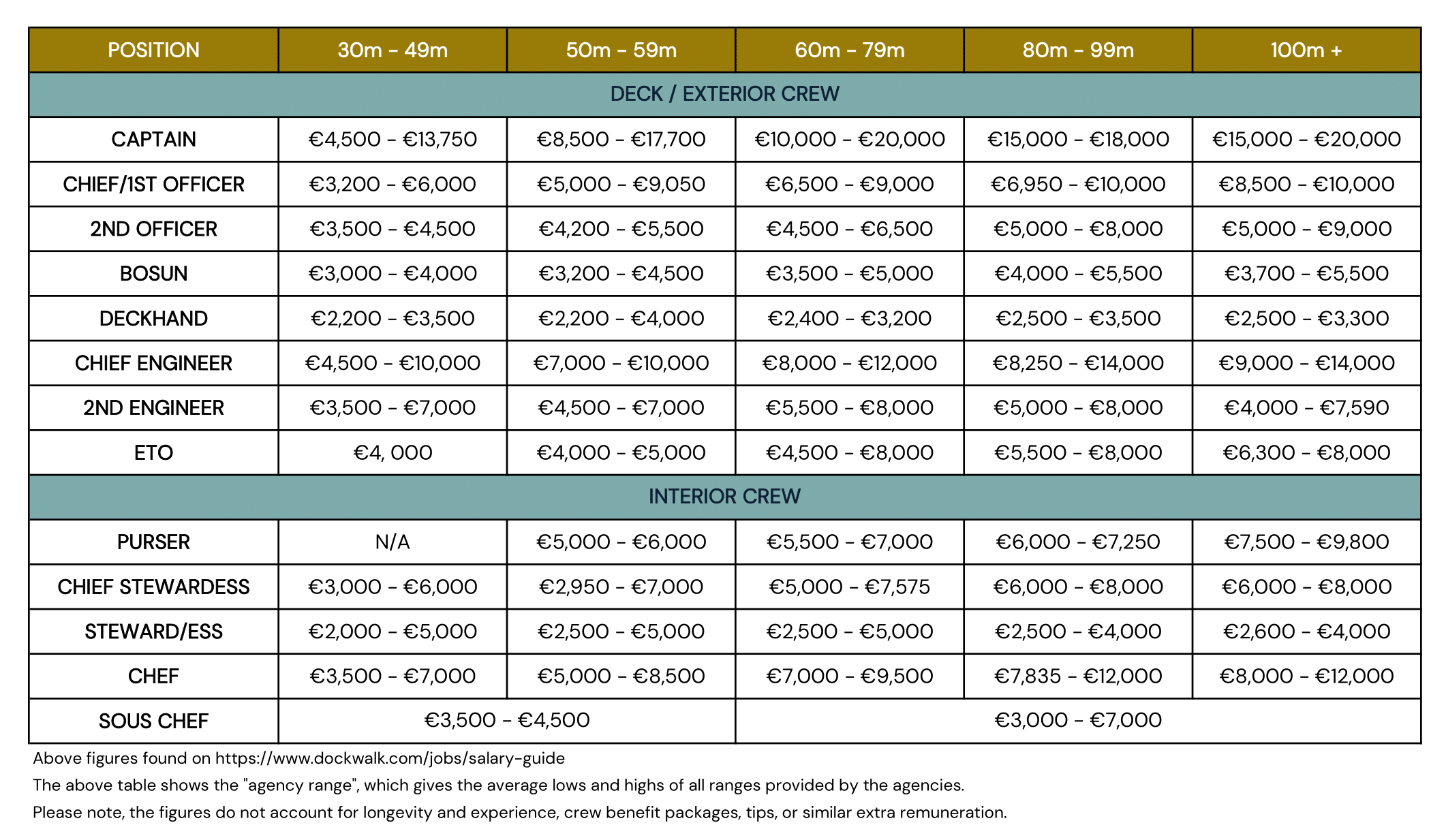
- Samples of current industry wage standards are subject to change without notification..
- Wages also vary depending on the specific qualification of the employee, the operation status of the yacht, whether private or charter, the itinerary of the yacht, and other requirements specific to the yacht. (Charter yachts generally have a lower base salary due to extra income from the charter tips.)
- Each Yacht has the option to transact in the currency convenient to its operation. You may be paid in a currency other than US dollars.
- Most yachts provide health insurance, accident insurance, etc. Unless otherwise stated at time of employment, all crew are responsible for his or her personal income tax. Each crew should investigate rules and regulations and seek official advice and remain current with their national requirements.
- All yachts are expected to provide food, uniforms, basic toiletries and other on board expenses such as laundry. Personal items are not included.
Reasons Why You Should Train With Us
Here are reasons why the Superyacht Crew Academy Maritime Institute is the best choice for your future career as a crew member on Superyachts
International Acceptance Of Your Qualifications
International Yacht Training Certificates are recognized by the Maritime Coastguard Agency of the United Kingdom (MCA), the US Coastguard, and 25 Governments around the world. No other organisation offers as diverse a range of nautical training or is as internationally accepted as IYT Worldwide. More information on IYT acceptance.
![]()
![]()
![]()
![]()
![]()
![]()
![]()
![]()
![]()
![]()
![]()
![]()
![]()
![]()
![]()
![]()
![]()
![]()
![]()
![]()
![]()
![]()
![]()
![]()
![]()
![]()
Dual Certifications
Your training programme for Deckhand will also qualify you for an Australian General Purpose Hand certification. If you already have an IYT MOY Ltd or RYA Yachtmaster this can be used towards training as a Master 24m. With an Australian certificate you can begin working on Australian registered vessels as soon as you graduate.
All IYT courses may optionally qualify you for the European International Certificate of Competency. You will need this extra certificate if you plan to work on yachts operating in the coastal and inland waters of Europe.
Get Qualified Quickly
Our courses are intensive, get-it-done-now programmes. This makes it easier for you to take off time to do the course, less expensive if you are coming from overseas or another state, and of course, faster for you to start earing money with your new rating.
Recognised Training Organisation
Superyacht Crew Academy is a nationally Recognised Training Organisation (RTO registration no. 91462) and ASQA approved training provider. This means we are accredited to teach and issue domestic commercial qualifications for the marine industry. Crew will be eligible to undertake a final AMPA practical assessment and then obtain an Australian certificate of competency issued by AMSA after successful application.
Expert, Experience Instructors
Superyacht Crew Academy instructors, have many years of experience aboard superyachts and commercial vessels and the International Yacht Training Curriculum was designed by years of collaboration and effort of like-minded sailing professionals. You can be confident of a complete and friendly learning experience.
Small Classes = Personal Attention
Most of your lessons will take place aboard one of our training yachts with only 4 to 5 like-minded students and a highly qualified instructor. Our graduates enjoy continued personal support via email and phone.
Excellent and Convenient location for Cruising Grounds For Practical Sea Training
Superyacht Crew Academy is located at Pittwater on Sydney’s Northern Beaches, 45 minutes north of the CBD. Superyacht Crew Academy’s training annexe and marina offer a sailing-friendly environment close to the beaches, accommodation, restaurants, and shopping areas. Pittwater affords year-round cruising in calm, protected waters.
IYT Government Recognition
Superyacht Crew Academy was the first International Yacht Training partner in Australia.
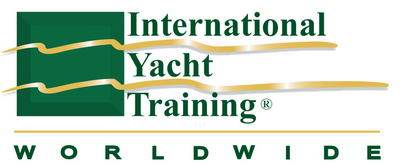
International Yacht Training Worldwide
International Yacht Training Worldwide certificates are recognised by 25 governments worldwide, all major yacht insurance companies and by the Maritime Coastguard Agency of the United Kingdom (MCA).
IYT can also provide course graduates with the Irish International Certificate of Competence recognised throughout Europe inland and coastal waterways.
Government Approval List
Maritime Coastguard Agency of the United Kingdom Red Ensign Countries
 Great Britain
Great Britain Cayman Islands
Cayman Islands Bermuda
Bermuda Isle of Man
Isle of Man British Virgin Islands
British Virgin Islands Guernsey
Guernsey Jersey
Jersey Turks and Caicos
Turks and Caicos Scotland
Scotland Wales
Wales N. Ireland
N. Ireland Anguilla
Anguilla Gibraltar
Gibraltar Falkland Islands
Falkland Islands St. Helena
St. Helena Monserrat
Monserrat
Other Countries
 U.S.A. (as dual certification)
U.S.A. (as dual certification) Marshall Islands
Marshall Islands Ireland
Ireland Bahamas
Bahamas Lebanon
Lebanon W. Australia (as dual certification )
W. Australia (as dual certification ) Queensland (as dual certification )
Queensland (as dual certification ) New South Wales (as dual certification)
New South Wales (as dual certification) Poland
Poland
IYT continues to apply for commercial recognition in other countries.
Terms and Disclaimer
Agreement For General Bookings
When a confirmed booking is made and accepted by Club Sail Pty. Ltd. (hereafter referred to as the ‘Company’ a binding contract shall be deemed to subsist between both parties. No liability shall accrue to either the Company student/passenger if either is prevented from fulfilling any of their contractual obligations by any incidence of force majeure including acts of God, strikes, or any other event which can reasonably be beyond the control of either party. In the event of any dispute arising out of the terms of this contract, it shall be referred to a mutually acceptable arbiter whose decision shall be binding to both parties. It is understood that the student/passenger will indemnify the Company for any non-insurable claims that may be made against it for damage or loss caused by the student/passenger or by members of their party whether wilful or through negligence.
How Do I Book?
1. Reservations can be made on the website – (see payment clause below)
2. PAYMENT: A 50% deposit payment is required to secure your place on a course. The remaining balance is due two weeks prior to course commencement. Only with prior arrangement will payment plans or late payments be accepted. Credit card or bank transfer are accepted methods of payment. On receipt of your deposit, a confirmation email and tax invoice will be sent to you outlining your chosen course and study material. All bookings will be held for a maximum of 7 days and will not be confirmed until a deposit payment has been received.
For students enquiring about Smart and Skilled NSW Government subsidised vocational education and training, please refer to the student handbook for information.
Booking Cancellation or Rescheduling
CANCELLATION or RESCHEDULING a booking inside 14 days must be made in writing or via phone by the person who completed the booking and is deemed to take effect on receipt.
RESCHEDULING
- An administration/service fee of $100 will BE CHARGED for any RESCHEDULINGinside 14 days.
- If a course is rescheduled inside 14 days to a future date, NO REFUNDS are applicable for a future CANCELLATION, regardless of how far in advance the cancellation occurs.
CANCELLATION
- There will be NO REFUNDS given for cancellations made inside 14 days.
- If a student leaves the course before the scheduled termination date and time for whatever reason NO REFUNDS will be given.
Any course material that has been issued to the student, MUST be returned to the Company before any refunds paid.
Weather Conditions
Whilst every effort will be made by the Instructor to give the students/passengers maximum time on the sea, weather conditions may be such that, in the opinion of the Instructor, the yacht or crew may be in danger and in such circumstances the vessel will remain in a place of safety. If the weather conditions are such that a prevention of the start or curtailment of a course or sailing trip occurs then no refunds will be given but alternative dates will be offered.
Transfer/Cancellation
The Company reserves the right at its’ discretion to transfer the course or sailing trip from one yacht to another and this action will in no way waive the terms and conditions stated herein. In the event of the Company having to cancel a course or sailing trip, without offering any acceptable alternative then the student/passenger shall be entitled to a full refund of monies paid and no further liability shall be incurred by the Company. MEDICAL The student/passenger agrees to advise the Company in writing of any medical disability or illness which may adversely affect the ability to participate in the course or sailing trip that they have chosen. It shall be at the discretion of the Company to refuse to accept a booking of a student/passenger where there is an unacceptable risk to the party and the Company in doing so. PRICING Prices are in Australian Dollars. DISCLAIMER Club Sail shall not be held liable for death, personal injury, loss or damage to property howsoever arising and therefore by signing this booking form, you hereby release, to the full extent permitted by state, law and equity, The Company, its’ employees and agents from all actual and contingent liability in respect of such personal injury, death, loss or damage.
Tips From The Pros On How To Get Superyacht Crew Jobs
Essential things to know to get your first crew position aboard a superyacht.
There Are Superyacht Crew Jobs Available
Crew Jobs
Super Yachts are built to last and every year more are added to the fleet. Yachts from 20 to 60 meters in length are numerous, and yachts 80 meters and larger are becoming more common. If all of the yachts now under construction were lined up bow to stern, they would stretch for a distance of 14 miles! All of these yachts will need professional crew as soon as they are launched. Meanwhile, Captains on the thousands of existing superyachts are often looking for replacement or supplimentary crew.
Old or new, superyachts must be maintained and operated in top condition. Changes in insurance policies and international and national maritime laws make it mandatory for professional crew members to be fully qualified for their positions. If you have the appropriate attitude and ability to operate and maintain these luxury vessels you can be assured of rapid placement.
Depending upon the size of the yacht, the most common crew positions are:
- Captain
- First / Chief Officer
- Mate / Bosun
- Deckhand
- Chief Engineer / 2nd Engineer
- Chief Steward/ess / Purser
- Junior Steward/ess
- Chef
- Sous Chef / Crew Cook / Cook-Stew
Kick Start Your Superyacht Career
Certified People Get The Jobs
Decide what your long-term goals are and start your training course at the Superyacht Crew Academy as soon as possible. Student training will put you in touch with professionals who can assist you with first hand information about getting your first crew position.
Professional qualifications are invaluable in the superyacht industry. By enrolling in superyacht training courses you make a clear statement to captains about your seriousness and motivation. A new-to-industry crew member with an IYT certificate is a step ahead of all other inexperienced applicants and even many who have had former crew positions but lack the certification and an STCW 95+10 safety certificate is required for all crew members.
IYT certificates are the most widely recognized commercial global certifications by the major yacht registries and governments
STCW stands for: Standards of Training, Certification and Watchkeeping for Seafarers. STCW 95 standards were set up by the International Maritime Organization (IMO) which has the force of law in all 154 signatory countries. Most yachts require all of their crew to be STCW certified, especially yachts that charter.
A crew member must attend a set of 5 basic courses that cover:
- Personal Survival
- Fire Fighting
- First Aid & CPR
- Personal Safety & Social Responsibility
- Security
Register With Crew Agencies
Prepare a Resume/CV. Your Resume will “sell” your abilities to potential captains. Superyacht Crew Academy courses include a component on how to write a resume for a particular crew position. Just ask and we can give you a template for a superyacht crew resume.
Register with crew agencies. There is usually no fee to register or for placement. Employers are responsible for paying a placement fee once they have hired a crew.
Interview – Once you have registered and submitted all of your information you may be contacted by the crew agencies to sit for a personal interview.
Check In – Most crew agencies require a weekly “check-in” from crew members in order to keep your file active. They also require a “CHECK OUT”. This means that if you have secured employment through another source, you must contact the crew agency to advise your status. Crew agencies are very important to you so it is always in your best interest to keep your agents informed of your ongoing job search and successful job placements
Register With The Yacht Crew Placement Agencies
The SuperYacht Crew Academy is primarily a professional International Yacht Training centre but does assist graduates in crew placement on Super Yachts by:
- Coaching students on CV preparation, and job interviews;
- Networking with international Crew Placement services and
- Direct referrals to captains and owners of megayachts.
As a graduate of our professional International Yacht Training, you will be expected to register yourself on one or more of the crew placement services and provide these services with your CV and training credentials. The SuperYacht Crew Academy will assist with advice and authentication of your credentials.
We have compiled a list of all the current crew agencies from around the world , please download it below and sign up to as many as you can.
Be Professional
A professional appearance and demeanour are prime requirements for success in the Superyacht Industry. Whether interviewing, dock-walking or day-working, always dress, look and act like a professional.
For more tips on what it means to be a “Professional” member of a yacht crew Click Here.
Reviews by Students
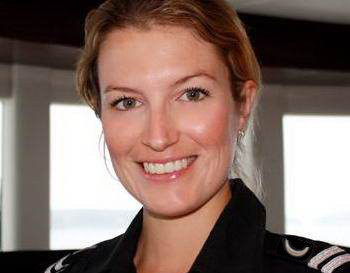
Everything is going GREAT for me!
I totally enjoyed the interior crew course.
Onboard A 154 Foot Superyacht!
Everything is going GREAT for me over here, we have travelled from Fort Lauderdale all the way along the East Coast up to Labrador, Canada, over 4000 miles so far. I’ve had my roster split so I spend the first part of the day as a deckhand, and the second part of the day as 2nd Stewardess onboard a 154 foot SuperYacht. The owners are fantastic. I totally enjoyed the interior crew course and feel so much more prepared for my stewardess role.
Kind regards
Katie Ford
More Than 4500 Graduates Since 2000!
Our graduates are aboard superyachts in every ocean of the world enjoying a life most people only dream of.
The Superyacht Crew Academy provides quality training that will make your dreams a practical reality.
- Get double, even triple certification with a single course
- Choose your courses to match your existing skill set
- Choose your training schedule to match your calendar
- Practical onboard experience and sea time included.
- Small classes with personal tutoring
- Experienced, qualified instructors
- Assistance with finding crew agencies and crafting CVs
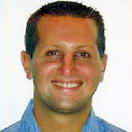
A big thank you for the professionalism to all people from the Superyacht Crew Academy. You guys really made this experience unforgettable.
Laurent Dreyer— Fast Track Graduate
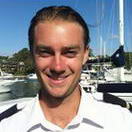
My experience with Superyacht Crew Academy was amazing. I had a fantastic time on the Deck Crew course and learnt a lot more than I expected.
Tom Armstrong— Deckhand

I’ve been on a superyacht for 6 months and I love it! thanks again for all the valuable training I received in my classes.
Jessica Benway— Stewardess
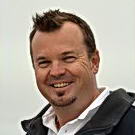
You are by far the most professional and successful training facility that I have dealt with round the world. Keep up the good work
Nick Smith— Chief Officer M/Y Akula
Network
Talk to people, walk the docks, check out websites and online forums, make friends, gather information and keep track of who you meet. Be proactive and positive in your approach. Sign up for superyacht blogs and forums.
Be careful what you put on social sites – like our Facebook page and follow us on Instagram – Never reveal confidential information about yachts, crew or owners and always consider what a prospective Captain might think looking at the posts and photos on your site. In other words, Network but STAY PROFESSIONAL online.
Useful Skills
Captains Give Preference To Crew Members With Useful Skills
For someone new to the industry, there are many ways to enhance your appeal to yacht owners and Captains. Depending on the position you are applying for, there are a variety of skills that can give you an edge over the competition, such as:
- Cooking (not necessarily gourmet, just a love of cooking, preparing simple dishes, and being familiar with a kitchen)
- Nanny / Baby sitting
- Formal service training / Silver Service / White Glove
- Bartending
- Carpentry / Woodworking
- Mechanics
- Painting – especially varnishing and woodwork upkeep.
- Diving / Water sports
- Professional level Sport Fishing.
- Experience in a Hotel, Resort, Cruise Ship, Restaurant or Estate
- Masseuse / Aesthetician licence
- Helicopter pilot
Get Top Pay For Your Superyacht Crew Job
Superyacht Crew Wages
Many variables are taken into consideration when determining the salary for each position, such as:
- Your work experience
- Training, licences and certificates
- Size of the boat
- Job description (the yacht may actually employ you for more than one position)
- Whether the vessel is for Private or Charter use – or both.
- Benefits and perks offered by the employer (Insurance, Vacation)
- Full time or Temporary employment
- Individual program of the vessel and owner’s budget
Commitment Counts
Be prepared to make a solid commitment. Longevity looks great to potential employers. But before accepting a long-term crew position meet the whole crew and be sure there are no major personality conflicts with other crew members. Some very important things to remember when you step aboard are:
- It’s not a vacation
- It’s not easy
- expect long hours and night shifts
- crew quarters may be small and cramped.
- polite, professional, proactive, and a positive mental attitude is required at all times- you can never loose your temper aboard a superyacht.
- you will be away from home for long periods.
- gossiping is strictly forbidden; owners and their guests value privacy and security. You may not tell others, or put online, anything at all about the owner, guests or the vessel’s itinerary.
- you may discover personality conflicts with one or more crew members and will need to resolve these issues through the Captain.
- If you can’t resolve an issue through the command, ignore it until the end of your contract, then find another yacht.
Pick Longer Jobs When You Can
Captains want crew with staying power. Take longer contracts whenever possible and avoid leaving early.
Working on a superyacht is considered full time employment unless otherwise stated. Most boats either work on a seasonal, temporary fill-in or permanent basis:
- Seasonal is usually about 3-6 months
- Temporary / Freelance may be for any length of time, normally filling in for crew on vacation, helping with charters, etc.
- Permanent is usually a commitment of at least one year. Owners and Captains make every attempt to avoid having a high crew turnover and therefore look for crew willing to make this obligation.
- Day work refers to work that is done on a daily basis (paid daily), usually in between jobs or to gain experience in the industry.
Not every superyacht will be the “right boat” for a crew member. Owner, captain, and crew personalities will differ from one yacht to another and finding a yacht where you “fit” may not happen immediately. Yacht schedules, charter or private, cruising grounds, and many other factors are important considerations. Finding the perfect position on a superyacht can sometimes be a long process or you might be fortunate enough to find the “right boat” quickly.
During the interview process, be completely honest. If you don’t be upfront and truthful, you’ll end up regretting it and may hurt your chances of future employment. If possible, meet the other crew members before accepting a position.
Captain and Mate positions are usually long term and all year round. Captains who get along well with an owner often remain working for the same owner for many years. If an owner sells a superyacht, he may decide to keep his entire crew for a new yacht. Meanwhile the new owner of the old yacht will be looking for a new Captain, mate and crew.
Jobs can come up at any time and in any part of the world. There are cruising seasons that move, seasonally, around the world. New crew members need to be available in the correct locations at the start and finish of these seasons.
Be In The Right Place At The Right Time
Most agencies and employers refer to a particular season in yachting. Each part of the year will be a prime yachting season somewhere in the world. There are several yachting hubs where prospective crew will base themselves in order to be available for upcoming positions during the prime season.
Europe
The prime cruising season in Europe is from June to September. Antibes (France) and Palma de Mallorca (Spain) are two yachting Mecca’s for job-seeking crew members. Many yachts spend their summers in the Mediterranean operating charters or cruising privately. During these months, many additional crew will be hired to help out while yachts are on charter.
Americas
Ft. Lauderdale (USA) is the yachting hub for yacht crew, especially for beginners. Superyachts typically come to Ft. Lauderdale for repairs, yard work and crewing once they have returned from trips to the Mediterranean, East coast of the USA and the Caribbean. They often depart in early winter and early spring for cruises.
The Caribbean (Antigua, St. Maarten, etc.) is active all year round, but the busiest season will be from October to March when many superyachts move south to warmer climates. However, most US based yachts pick up their crew in Florida or their home port before they leave.
During May to September many superyachts leave Florida, the Bahamas and the Caribbean to head to the northeast coast of the United States. Newport, Rhode Island (USA) is a very popular spot, especially for sailboats and race crew. You will find a great deal of yachting activity in and around this area, all the way down to New York and the islands located off it.
Australia and New Zealand
Superyacht leave the Pacific island before the cyclone season and spend the austral summer months – November- May – in Sydney or Brisbane Australia or Auckland New Zealand.
Download The Ultimate Guide to Starting Your Superyacht Career
If you would like more in-depth information on how to start your superyacht career, we have created a pdf booklet to give you as much beneficial information as we can to help you get started.
You can download the PDF version below
Download The Ultimate Guide To Starting Your Superyacht Career
7 Wonders of the World of Superyachts
Life is what you want it to be.
Nautical Design
Superyacht Supertech
Superyachts are the ultimate in one-up-man-ships. Owners spare no expense in creating nautical marvels of efficiency, functionality, and beauty.
Your Mission: Make it Efficient, Functional, Beautiful.
Of course not everyone has the same taste when it comes to design. Some superyachts are very beautiful, some very practical, and many of them (being one-off creations) have technical problems. But still, these are amazing vessels and it is sometimes an exciting challenge to participate in keeping such creatures functioning smoothly and looking their best.
Money
Money
Superyachts are modern castles for the super wealthy. Castles with a very big moat around them. One thing for sure is that the owners know all about value for money and they are willing to pay YOU well – but will be expecting you to be worth every penny that you earn.
Salaries aboard superyachts are, like the yachts themselves, extravagant. Even if you are only working seasonally you’ll be enjoying your earnings all year round. If you invest wisely yourself you’ll be enjoying your money for a long time to come.
5 Star Lifestyle
Living in Luxury
Your crew quarters will not be anywhere near as luxurious as the owner and guest cabins but you will be enjoying the luxury of the entire vessel when you are not in your bunk.
You’ll be surrounded with the very best that our world has to offer and you won’t be paying for it out of your salary. It’s not like living ashore in an apartment or house where you need to buy a thousand things – from towels and sheets to pots and pans. On all yachts you’ll have the very best of these necessities for free and on some yachts you’ll even be supplied with clothes. Which means, of course, that ALL of your extravagant salary will go straight into your bank account.
Gourmet
Free and Healthy Meals
Superyacht owners, guests, and crews enjoy really excellent meals. Food is, these days, a major expense for shore-dwellers and many people can’t afford the best quality foods even when they have excellent salaries; not with their mortgages, cars, loans that need paying off, fees and taxes on everything. Some people just don’t have time to eat and crash their health on junk foods.
Most superyachts employ a full time chef, sometimes two, and they need to be good to satisfy the owner. And believe me, the owners of superyachts know a thing or two about good food and healthy diets. When the owner is not aboard, the chef still prepares all the meals – breakfast, lunch, dinner – for the crew. The crew might not be digging into the stocks of caviar,fillet mignon and $1000 a bottle wines, but the food will still be excellent,healthy and free.
Endless Horizons
Adventures in Paradise
Superyachts sometimes stay in one port for months – and you can bet those ports are vacation spots that you’d just love to visit. But most owners like to go places with their superyacht – which is one reason they buy them. The owners dream of sailing off to exotic ports around the world to sample their beauty and enjoy the cultural and biological diversity of our ocean planet.
If you are someone who shares the desire to travel to far off places, to see and do things personally in fabulous locations, to go snorkeling in New Caledonia’s beautiful marine parks or dive on the Great Barrier Reef, or visit stone-age cultures in Vanuatu, visit Tahiti, the French Riviera, Greece, Nassau, Fort Lauderdale – well, then get busy and start training for the expedition of a lifetime aboard a fabulous superyacht.
Action
Light, Camera, Action
You’ll flip when you see the action toys on a superyacht; jet skis, helicopters, the best dive gear, surf boards, paddle boards, kite surfing equipment, wind surfers, water skis, deep sea fishing gear. You will find all the required equipment for whatever action sports the owner and guests prefer. Not to mention the tender to zip everyone from place to place, and some yachts have a gym, swimming pool, and jacuzzi on deck, too. Oh, and then there is the entertainment system with music, videos, and of course satellite TV and Internet.
You might, or might not, get to play with all – or any – of the toys when the owner and guests are aboard but most crews enjoy the use of the equipment when the owner is not aboard.
"A" Team
The A Team
The crew of a superyacht must be professionals, dedicated to excellence. They – and you – have to know exactly what to do and how to do it at all times, and especially in emergencies. In short, the whole crew – Captain, Mate, Engineer, Steward/ess, and Deckhands – have to be winners. Crew members have to have two key abilities; they have to be good at what they do and know how to get along with each other.
There is a rigorous selection process in the ecology of sea people. Superyacht owners may be very different people but every single one of them demands perfection; perfection in their yacht and perfection in their crew. If a crew member does not make the grade – can’t get along – the captain will replace that crew member with someone who fits in and does the job correctly and can get along with his team. What this means is that once you find the right superyacht you will be living in close quarters with a team of like minded people, sharing a mutual respect and trust. And that, my friend, makes life aboard a Superyacht extra special.
Superyacht Crew Excellence
Professionalism First, Last, Always.
Superyacht Crew Academy courses include training modules to help you become an excellent member of a superyacht crew.
Professionalism
Superyacht Crew Professionalism
A professional is able to concentrate efficiently on their job first, last, and always.
Keep Your Cool, Do Your Job,
Aboard a Superyacht you are not alone, you are part of a crew.
The crew must live up to the high standards demanded by the owner and officers. They know they will be recognized and rewarded when they succeed and know; equally well, they will be told and corrective action taken if they fail. Their commitment to upholding the command’s standards generates a strong sense of responsibility for their individual work areas. They act on the principle that if you’re going to do something, do it right, and do it right the first time.
Life aboard a superyacht is not always exactly what you want it to be. There will be times when your work is stressful, when someone does something to irritate you, when you are tired or don’t feel well. But you are part of a team and will be expected to do your job to the best of your ability, to give and accept support from your crew mates, and never, not ever, not even once, loose your cool and become angry or aggressive.
Respect the Chain of Command
The Chain of Command
Without a top performing crew, no ship can be successful. Captains of superior commands are particularly adept at molding their crew into a highly unified, spirited, team with a professional focus on keeping the yacht and her equipment in prime condition and the owner and guests happy. When asked, top crews can clearly describe the command’s philosophy and goals, and voice wholehearted support of the Captain and his approach. Because the Captain and officers frequently explain what they want done and why.
The crew knows what is expected of them and each person feels part of the team. The result is enthusiasm, motivation, and pride in the command.
In addition, crew members are careful about following the chain of command. They know that violating it disrupts teamwork, creates confusion, hurts morale, and hinders leadership.
Communicate and Coordinate
Teamwork is Excellence
Members of excellent crews realise that success depends on a team effort. They don’t act or do their jobs in disregard of the rest of the command. They communicate frequently, coordinate activities, and help each other out when necessary.
Crew members take responsibility and ownership for their jobs. They have a sense of duty that helps them to always keep their cool and be professional on duty and off duty, aboard ship or ashore. Excellent crew members are mature and respectful of themselves and others.
Mission Oriented Performance
Everything You Do Makes A Difference Aboard A Yacht
An excellent crew is always aware that everything they do is important aboard a ship. Each crew member takes full responsibility for what they do or do not do and judge their own behaviour on the ultimate mission goals; keeping the ship in top condition and the owner and guests feeling comfortable and appreciated.
Excellent crew members take the initiative and are proactive. They are always thinking, “What can we, as a team, do to make the owner and guests happy?” Life aboard a superyacht is always about a blend of professional seamanship and hospitality.
High Standards
Standards and Integrity
Superyachts are designed and built to super high standards and this means they have equally high standards of maintenance. Every part of a superyacht is integral and vital to the operational whole vessel and needs constant, proactive attention from the crew.
Excellence requires integrity; every crew member aboard the superyacht must adhere to strict moral and ethical principles. Each member of the crew, including the officers, must be honest, fair, open, and dedicated to the owner, the guests, and the vessel itself
Pride
Achieving Excellence = Pride
Excellent crews take pride in their work, their vessel and in their team. When the yacht is performing at it’s best, and the owner and guests are properly awed by the smooth harmony between a fabulous yacht and exemplary crew, each member of the crew feels excellent, because that’s what they are.

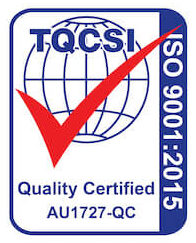)
)